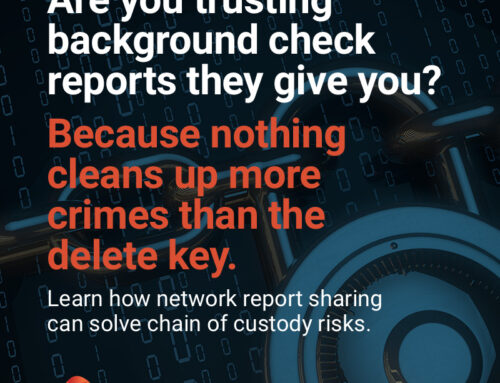The hiring process is a crucial component of building a strong team and ensuring the success of any organization. However, this process can sometimes be influenced by personal biases, which can lead to unfair and inconsistent hiring decisions. In particular, when it comes to background checks, these biases can have significant implications on an applicant’s chances of getting hired. At ShieldHub, we are committed to eliminating personal biases in the hiring process by offering a standardized, objective background check system that ensures parity across states and counties.

The Problem with Unconscious Biases in Background Checks
Unconscious biases in the hiring process can arise from various factors, including conscious or unconscious beliefs, opinions, and stereotypes about an applicant’s background, race, gender, or other characteristics. When conducting background checks, these biases can manifest in various ways:
- Inconsistencies in decision-making: Different hiring managers might have different opinions on what constitutes a “red flag” in a background check, leading to inconsistent hiring decisions.
- Subjectivity in evaluating offenses: The severity of a crime or its relevance to a job might be subjectively assessed, resulting in unequal treatment of applicants.
- Overemphasis on negative information: Personal biases may cause hiring managers to focus on negative aspects of an applicant’s background, ignoring positive qualities and achievements.
The Impact of Name Bias in Hiring
A study conducted by Harvard researchers, titled “Are Emily and Greg More Employable Than Lakisha and Jamal? A Field Experiment on Labor Market Discrimination,” demonstrated the impact of personal biases in the hiring process. The study found that applicants with “white-sounding” names received 50% more callbacks for interviews than applicants with “black-sounding” names, despite having identical resumes. This finding highlights the importance of minimizing personal biases in the hiring process, including during background checks.
Introducing a Standardized Background Check System
To address these issues and promote fairness in the hiring process, ShieldHub has developed a standardized background check system that scores applicants against a defined matrix of crimes. This system eliminates personal biases by providing an objective, consistent evaluation of each applicant’s background, regardless of their state or county.
 The Individual Compliance (IC) Score
The Individual Compliance (IC) Score
Instead of relying on manual reviews, ShieldHub’s background check system assigns each applicant an Individual Compliance (IC) score. This score is calculated based on a comprehensive evaluation of the applicant’s criminal history, taking into account the severity and relevance of any offenses to the job in question. The IC score provides hiring managers with an objective, data-driven assessment of an applicant’s suitability for a role, helping to eliminate personal biases and ensure consistent hiring decisions across the board.
Benefits of ShieldHub’s Standardized Background Check System
By utilizing ShieldHub’s standardized background check system, organizations can enjoy several benefits:
- Fair and consistent hiring decisions
The IC score ensures that all applicants are evaluated based on the same criteria, promoting fairness and consistency in the hiring process. - Reduced risk of discrimination:
By eliminating personal biases, ShieldHub’s system helps organizations comply with anti-discrimination laws and avoid potential legal issues. - Improved efficiency:
The automated scoring process is faster and more efficient than manual background check reviews, allowing organizations to make informed hiring decisions more quickly.
Conclusion
Personal biases in the hiring process can have a significant impact on the fairness and effectiveness of background checks. By adopting ShieldHub’s standardized background check system, organizations can eliminate these biases, promote fairness, and ensure that all applicants are given an equal opportunity to succeed. With the IC score, hiring managers can make objective, data-driven decisions that benefit both their organization and the applicants themselves.





